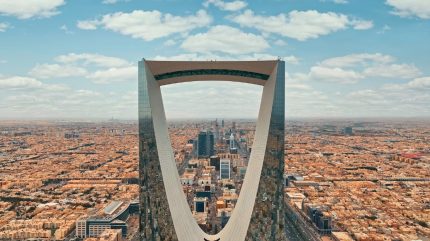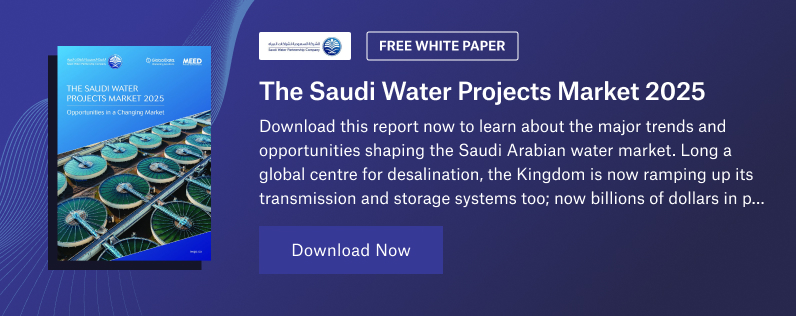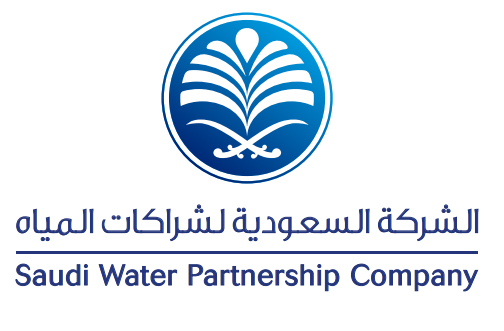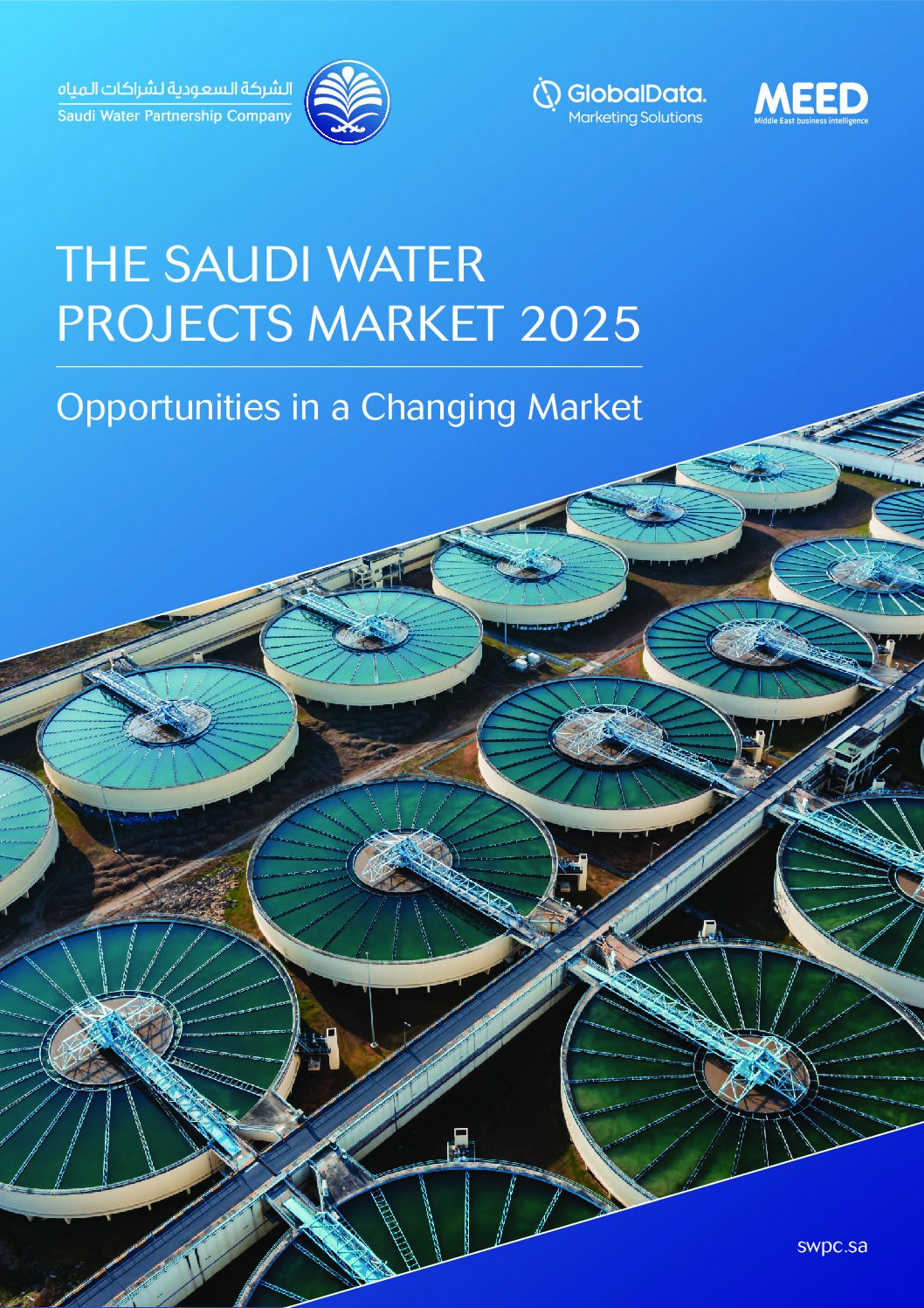
With no permanent rivers and only limited groundwater reserves, Saudi Arabia faces water challenges like few other nations. It has long relied on desalination and large-scale transmission; today, Saudi Arabia is the world’s largest desalination market.
However, population growth, urbanisation and industrial expansion have placed constant pressure on supply. By 2030, daily demand is forecast to reach nearly 18 million cubic metres. Meeting this challenge requires the state to reshape its water infrastructure strategy to one capable of producing, transmitting and storing water with the same efficiency as any world-class energy grid. Under Vision 2030, the government is working to guarantee long-term water security through public–private partnerships (PPPs), large storage reservoirs and an integrated transmission system linking coasts with inland cities.

The Yanbu 4 independent water project
One significant development in this strategy is the Yanbu 4 Independent Water Project (IWP), located on the Red Sea coast near the industrial city of Yanbu. With a desalination capacity of 450,000 cubic metres per day and potable water storage of 900,000 cubic metres, the project is designed to supply the holy cities of Medina and Mecca.
Yanbu 4 is an integrated scheme that combines storage, a 42-kilometre transmission pipeline, operational storage facilities, and dedicated energy infrastructure that includes a 380/110 KV substation and 110 transmission towers – stretching across 40 kilometres. The project, delivered under a Build–Own–Operate (BOO) model, is operated by Yanbu International Water Company, a joint venture comprising Engie (40%), Mowah (30%) and Nesma (30%). With a 25-year concession, commercial operations began in 2024, at a total project cost of just under SAR 3.3 billion.
Rather than relying on state-funded EPC models, the Yanbu 4 project was structured as a PPP with clear, long-term commitments. The Saudi Water Partnership Company (SWPC) acted as the offtaker, ensuring contractual security for investors while delivering critical national infrastructure. This collaborative model means that investors secure stable, government-backed returns, developers contribute international expertise, and Saudi Arabia gains capacity without straining public budgets.
Local content requirements (the proportion of goods, services and labour sourced locally) were embedded from the start: 40% during construction, rising to 50% in the first five years of operation, ultimately reaching 70% from year six onwards. This localisation policy ensures major projects generate jobs, as well as nurturing industrial capacity and technical skills within the Kingdom. At the same time, investors benefit from smoother project delivery and alignment with Vision 2030’s emphasis on economic diversification. Yanbu 4 also incorporates renewable energy elements to help reduce the carbon footprint of energy-intensive desalination in line with Vision 2030’s Saudi Green Initiative (SGI).
In a global infrastructure landscape where cost overruns and delays are almost expected, the Yanbu 4 project demonstrated the potential of new PPP projects by reaching commercial operation as planned in 2024. This punctuality was the product of a collaborative PPP framework, robust risk allocation, and a professionalised procurement process led by SWPC, whose transparent tendering standards mirror international best practice.
Looking ahead
For Saudi Arabia, the Yanbu 4 project provides a reliable new supply to some of the most water-stressed and symbolically important regions in the country. For investors and developers, it shows that the Kingdom offers bankable opportunities in a sector of vital national importance.
By embedding PPP structures, localisation targets and sustainability measures into its infrastructure strategy, projects like the Yanbu 4 project have created a template for future delivery. As population growth and industrialisation continue, projects built on this model will be critical in securing water resilience for inland cities and holy sites alike. Moreover, the emphasis on local content and renewable integration means these developments contribute to wider economic diversification and environmental goals under Vision 2030. If replicated and scaled, major projects like Yanbu 4 could be a new generation of water projects across Saudi Arabia.
To find out more, download the whitepaper on this page.



